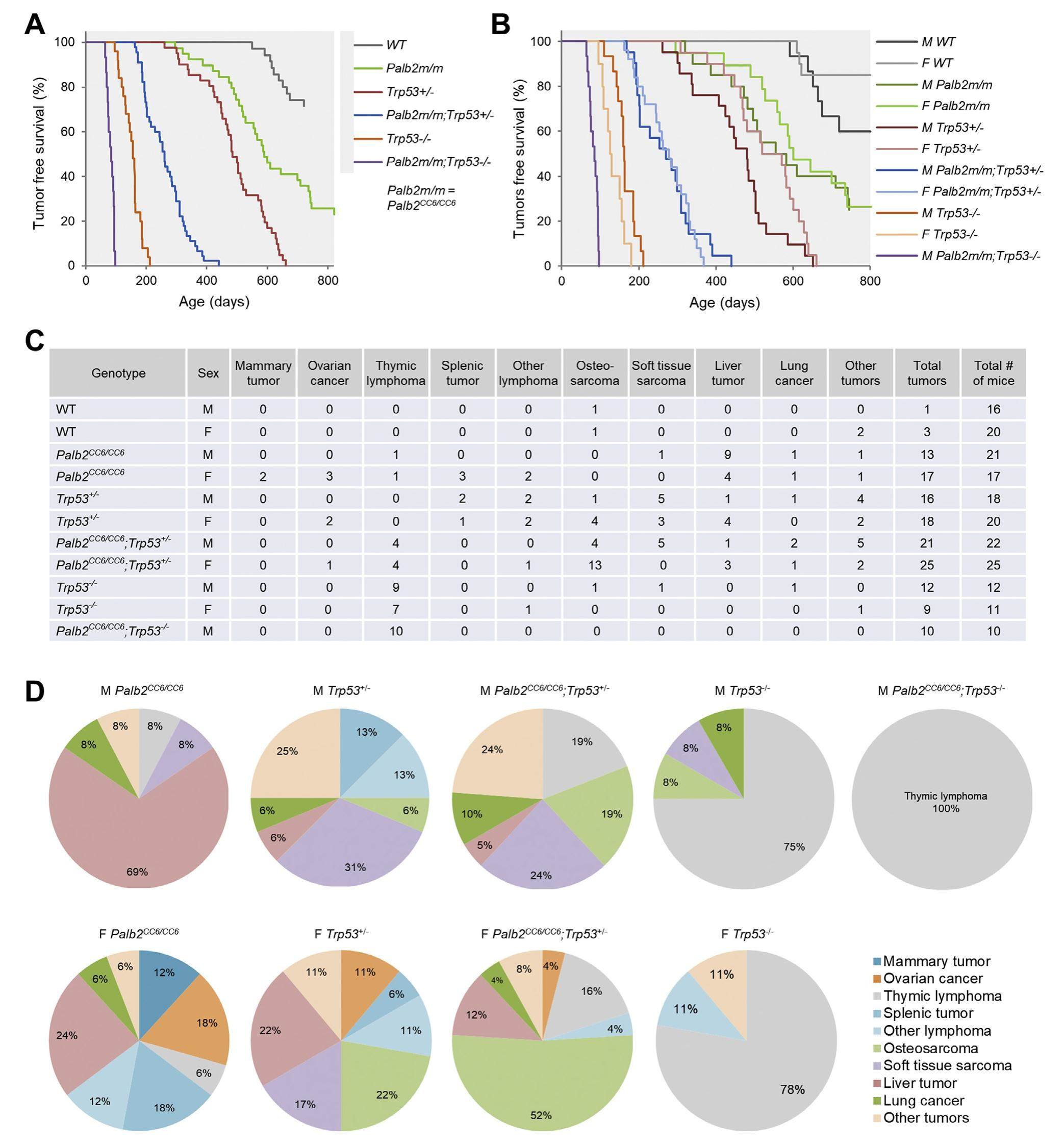
Loss of the BRCA1-PALB2 interaction accelerates p53-associated tumor development in mice


The BRCA1-PALB2-BRCA2 axis, or the BRCA pathway, plays key roles in genome stability maintenance and suppression of breast and several other cancers. Due to frequent p53 mutations in human BRCA1 breast cancers and mouse mammary tumors from Brca1, Brca2 and Palb2 conditional knockout models, it is often thought that p53 inactivation accelerates BRCA1/2 and PALB2-associated tumorigenesis. Here, we studied tumor development in mice with a mutation in Palb2 that disengages the PALB2-BRCA1 interaction in different Trp53 backgrounds. Rather than mammary tumors, Palb2 and Trp53 compound mutant mice developed, with greatly reduced latencies, lymphomas and sarcomas that are typically associated with germline Trp53 inactivation. Whole exome sequencing failed to identify any significant differences in genomic features between the same tumor types of Trp53 single mutant and Palb2; Trp53 compound mutant mice. These results suggest that loss of the BRCA pathway accelerates p53-associated tumor development, possibly without altering the fundamental tumorigenic processes.
